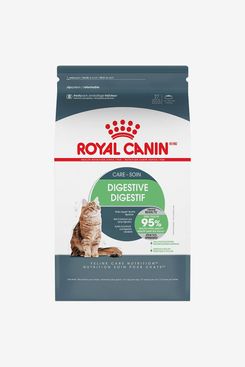Welcome, cat lovers! Are you on a quest to find the perfect food for your purring pal? You’ve arrived at the right place. Cats need lots of love, playtime, and the right food to live a healthy life.
There are so many options out there. Dry food, canned food, and even home-cooked meals! We will explore them all. So, let’s jump right into the yummy world of cat food.

Credit: nymag.com
Why the Right Cat Food Matters
Cats have special needs in their diet. They need food that helps them grow, keeps them fit, and tastes great too!
Choosing the right food can help prevent health problems. It can keep your cat happy and healthy for a long time.
The Battle of Cat Foods: Dry vs. Wet
Dry Food:
- Easy to store and lasts a long time.
- It can help clean your cat’s teeth.
- Often costs less than wet food.
Wet Food:
- Helps keep your cat hydrated.
- It may be better for cats with health problems.
- Many cats love the taste.
Some cat owners like to mix both wet and dry food. This gives cats a tasty variety and covers all their needs.
Top Picks for Cat Food Brands
Let’s look at some brands that are loved by cats and their humans:
| Brand | Type | Key Benefits |
|---|---|---|
| Purina Fancy Feast | Wet Food | Yummy taste, great for picky eaters |
| Blue Buffalo | Dry Food | Natural ingredients, good for teeth |
| Royal Canin | Both | Special formulas for different ages |
What to Look for in Cat Food
Check the label! High-quality cat food has good stuff like:
- Protein from meat or fish
- Fats and oils for a shiny coat
- Vitamins, minerals, and fiber for overall health
- Little to no fillers like corn or soy
Remember: Tailor your choice to your cat’s age and health needs. Kittens need different nutrition than older cats. Cats with health issues might need special diets too.
Cat Food and Health Conditions
Some cats require special diets for their health. For example:
- Overweight cats need low-calorie food.
- Senior cats may need food easy to digest.
- Cats with kidney problems may need less protein.
Your vet can help you pick the right food for these needs.
Homemade Cat Food: A Good Idea?
Making cat food at home can be fun! But, it’s important to know what cats need. Cats need special nutrients, like taurine, to stay healthy.
Before you try homemade food, talk to a vet. They can guide you to make sure your cat gets what they need.
Tips for Feeding Your Cat
- Keep fresh water available at all times.
- Follow the feeding guide on the cat food label.
- Change the food slowly to avoid upset tummies.
- Check with your vet if you’re not sure about something.
:max_bytes(150000):strip_icc()/peo-best-cat-food-brands-of-2023-tout-30bb13031ed94ed0941e77797da16eb7.jpg)
Credit: people.com
In Conclusion
Finding the best cat food can be a tasty adventure. Remember, every cat is different. What works for one cat might not work for another. Always think of your furry friend’s needs and tastes.
If you’re ever unsure, your vet is the best guide. They know your cat and can give you the best advice.
Now, it’s time to make mealtime the highlight of your cat’s day! Choose a cat food that is both nutritious and delicious. Then, sit back and watch your feline thrive!
Frequently Asked Questions For Which Is Best Cat Food
What Are Top Rated Cat Foods?
Selecting the best cat food hinges on ingredients, nutritional balance, and palatability. Brands like Royal Canin, Blue Buffalo, and Purina often rank highly among pet owners and veterinarians for quality and satisfaction.
Is Wet Or Dry Cat Food Better?
Wet cat food typically offers higher moisture content beneficial for hydration, while dry food can be better for dental health. Balance and cat preference are key considerations in choosing between them.
How Often Should Cats Eat Daily?
Adult cats typically benefit from two meals a day. Kittens may require more frequent feeding of three to four times a day due to their developmental needs.
Can Cats Be Allergic To Certain Foods?
Yes, cats can develop allergies to foods, common allergens include beef, dairy, and fish. Symptoms can include itching, digestive issues, and skin problems, warranting a veterinarian’s diagnosis.

Leave a Reply